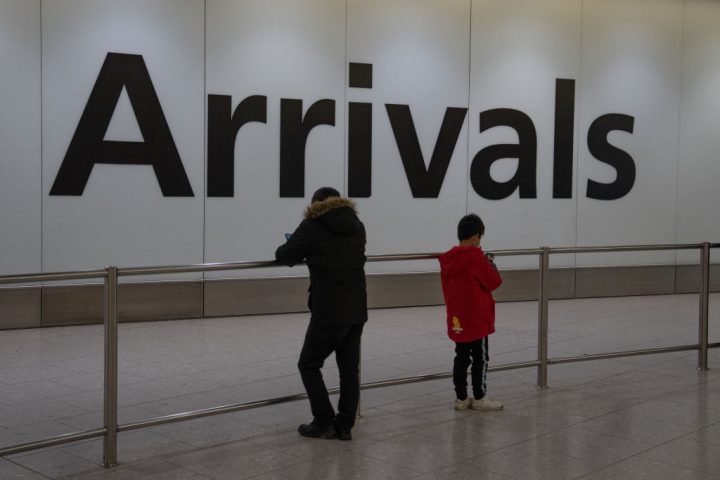Ok folks, the show is over and there’s nothing left to see: that traditional refrain of an American police officer at the scene of an on-street drama is being repurposed for Britain’s immigration debate. Official figures out today show a significant downward trend in visa applications for work and study – and especially for bringing in dependants after a tightening of the rules at the fag end of the last Conservative administration.
Sponsored study visa applications fell by 16 per cent in the first half of this year compared to the same period last year, while applications to bring in dependants plunged by a massive 81 per cent. Applications for health and social care worker dependants are also down sharply.
YouGov has recorded yet another surge in public anxiety over immigration
For the Tories, this shows that measures implemented last year to counteract an enormous spike in foreign students and low-paid workers bringing in family members have worked. For that they deserve the credit. For Labour, the figures point towards them comfortably meeting their election promise to bring down immigration levels bequeathed to them by the Conservatives without really having to break a sweat.
Overall annual net migration is clearly going to come off the 650,000-750,000 range of the last few years and reduce to something more palatable – perhaps even heading down to as low as 400,000. But that’s where the narrative falls apart.
Why? Because the huge changes wrought in British society by mass immigration over the past quarter of a century have been based on average net influx levels of about 250,000 per year. This was the level that torpedoed Gordon Brown’s election campaign in 2010 when he came face to face with the redoubtable Gillian Duffy. It was the level that David Cameron deemed so excessive that he promised to get it down below 100,000. His failure to get anywhere near doing so was probably the biggest factor propelling the Leave cause to victory in the EU referendum of 2016.
The doubling and trebling of the already massively excessive 250,000 typical net influx that occurred on the watches of Boris Johnson and Rishi Sunak was likewise the biggest factor in the evisceration of the Conservatives at the recent election.
The cumulative negative impacts of these volumes on issues ranging from the dilution of the nation’s capital stock, to contributing to public services overload, housing shortages and the collapse of social cohesion in many places are locked into British politics long-term.
To imagine that the immigration debate over the next few years will consist of Labour and the Tories arguing which of them should get the credit for solving the crisis is therefore ridiculous. Just this week, the pollster YouGov has recorded yet another surge in public anxiety over immigration. It is now the overall top issue cited by voters, seven points ahead of the economy. Much of this may relate to the volume of illegal immigration, which is set for yet another boom after the government dumped the Rwanda plan with no equivalent deterrent to put in its place. Labour’s plan to move illegal migrants out of hotels and into empty homes is hardly going to calm public anger either as rents surge even higher in response to the extra demand.
A large section of the British electorate now demands an altogether more radical change when it comes to migration policy. Nothing less than a generation-long pause in mass immigration will satisfy some voters. And the presence of Nigel Farage and four other Reform UK MPs in the House of Commons – all of whom campaigned on a policy of implementing net zero migration – is going to provide a high-profile outlet for such views.
Farage, whom I am told has been abroad again on a long-haul trip to see his new grandson, soon after a well-publicised visit to the US, has not enjoyed the most sure-footed start to his parliamentary career. His personal ratings are down somewhat. But as sporting pundits are wont to say, while form is temporary, class is permanent. Farage will be grabbing the immigration debate by the scruff of the neck by the time Parliament reconvenes in the autumn – and getting plenty of electoral traction as a result.
Given the active role that all the other main UK-wide parliamentary parties have played in the great mass immigration experiment – Labour 1997-2010, Conservatives 2010-2024 and even the Lib Dems in coalition 2010-2015 – Farage has a huge political opportunity ahead on a core issue on which all his opponents are stymied. A few tweaks on sectoral and dependant visa requirements are not going to cut the mustard. The show is not over and there will be plenty left to see.







Comments